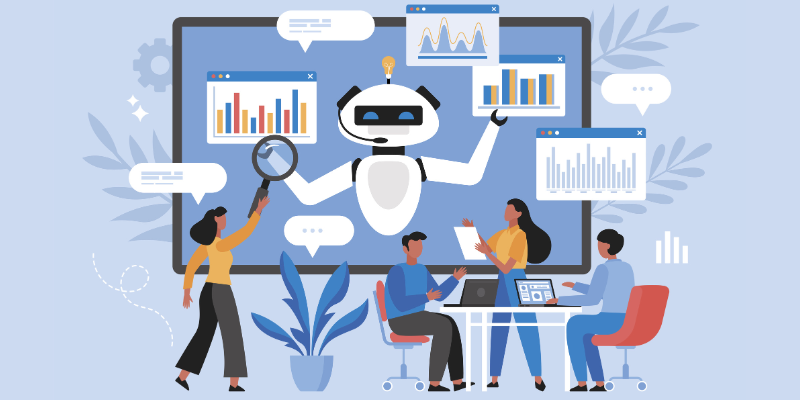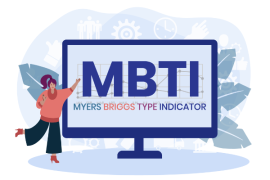By Amanda N. Wegner
Between juggling dozens of tasks, trying to recap endless online meetings and writing the perfect email to your reply-all-loving colleague, we could all use an extra hand in the workplace. Tools powered by artificial intelligence, or AI, can be that extra hand to help empower you and your work — not replace you.
“We are in an exciting period where new industry- and role- specific AI tools — many of which are powered by existing AI models — are becoming available on an almost-daily basis,” says Maggie Brickerman, a partner at gener8tor, a venture firm and startup accelerator founded in Wisconsin in 2012. “If you can think of a job title, there is probably a specific product for it.”
“AI is as big a revolution as the internet and is completely changing work across all sectors,” says Stacy Wilkes, who previously helped develop AI tools and founded Goddess.ai last fall. “Everyone will be impacted.”
AI tools can lead to greater efficiency and productivity in the workplace, say Wilkes and Brickerman. This, adds Brickerman, “frees up time to think more creatively, which leads to more innovation, better problem-solving and ultimately higher-quality work — and hopefully happier humans doing that work.”
The most recommended AI tool is a chatbot such as ChatGPT, Google’s Gemini and Claude.ai. AI chatbots use natural language processing to create human-like conversations and can be used for innumerable workplace tasks.
“ChatGPT has truly infinite uses,” says Brickerman. “I like to use it for writing drafts, researching new topics and quickly finding formulas for Excel or code for Airtable automations.”
In her prior work developing AI to read candidate resumes, Wilkes saw how the models that power AI can be discriminatory. That’s why she recommends Claude.ai, as it has “a more ethical approach.”
One of Brickerman’s favorite AI tools is Reclaim.ai, a smart calendar tool she began using after seeing her weeks filled with endless Zoom calls and meetings.
“With Reclaim.ai, you can enter the amount of time you need every week for non-meeting work (or other priorities like exercise), and it intelligently blocks time on your calendar,” she explains.
To manage tasks and to-do lists, Wilkes likes goblin.tools, which breaks down tasks into more manageable steps.
If your week is filled with video calls and meetings, tools like Fireflies.ai or Otter.ai can transcribe your meetings, summarize key points and pull forward follow-up activities.
For those with unreasonable email inboxes, check out a tool like SaneBox to help organize your inbox and prioritize important messages.
Given its blazing-fast rise, AI does come with some caveats.
Chatbots are trained on data from the internet, and the most recent version of ChatGPT is only updated through April 2023. With that, says Brickerman, “If you are using it to research a new topic, you can’t take the information at face value without doing some follow-up to validate [it].”
In addition, while AI is smart, humans are still smarter: “You absolutely have to check and improve the work of whatever tool you’re using,” says Brickerman.
Because AI tools, particularly chatbots, are open-source and learn from the internet, avoid putting confidential or protected information in the engine. From this perspective, Wilkes notes that companies of all sizes must establish policies and guidelines for AI use.
“Once you put in [that information], it becomes part of the knowledge base,” says Wilkes, “which can create concerns regarding privacy, copyrights, protected secrets and personally- identifiable information.”




